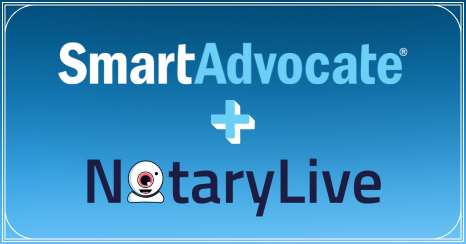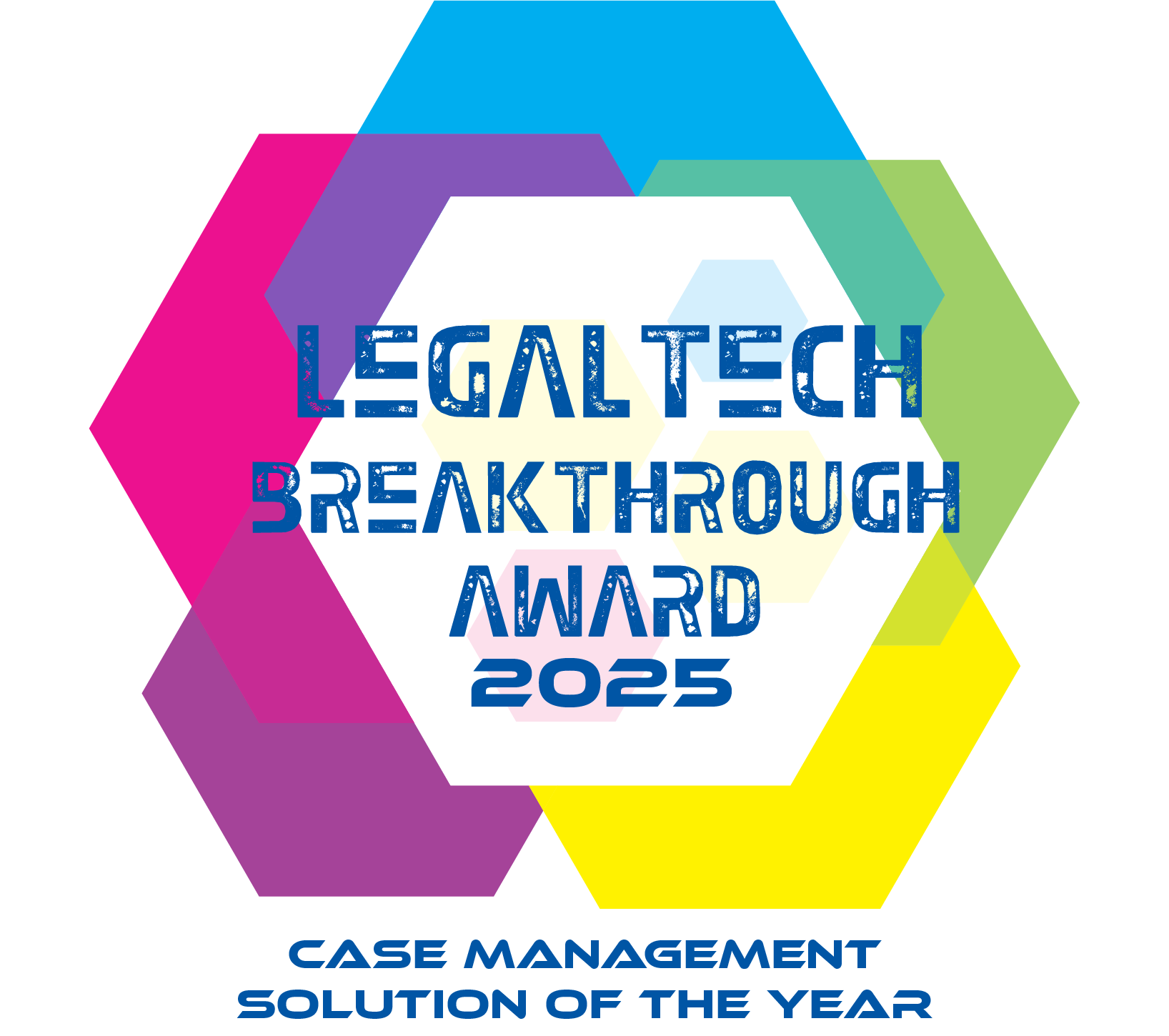The AI Revolution in Legal Software: What Your Firm Needs to Know for 2025
Artificial Intelligence (AI) isn't science fiction anymore. It's here, it’s now, and it's fundamentally reshaping how legal practices operate.
For law firms like yours, especially if you're focused on plaintiff representation in personal injury, mass tort litigation, or workers' compensation, 2025 is a pivotal year. Adopting and integrating AI isn't just about staying modern; it’s become crucial for a real competitive edge and a serious boost to your operational capabilities.
Don't just take our word for it. A wave of industry data and expert analyses shows a significant surge in AI exploration and use across the legal community.
What’s in It for Your Plaintiff-Focused Firm?
If your firm specializes in these demanding practice areas, AI brings almost unbelievable opportunities to the table:
- Skyrocket Efficiency: Imagine automating those time-draining tasks like sifting through mountains of documents, summarizing complex medical records, or communicating with clients when significant events occur in their cases.
- Boost Your Bottom Line: Think more precise case valuations, slashing non-billable hours, and smarter resource allocation.
- Elevate Client Satisfaction: Envision faster case resolutions, smoother communication, and more personalized client interactions.
Your Roadmap to AI in 2025 and Beyond
This article is your guide. We'll break down:
- Dominant AI trends you can't ignore.
- Their real-world impact on personal injury, mass tort, and workers' comp. firms.
- Smart strategies for adopting AI (and dodging the pitfalls).
- A sneak peek at what’s beyond 2025.
Our goal? To give you actionable insights, backed by solid data and expert views, so your firm can confidently understand and use AI to win in 2025 and the years to come.
The Shifting Landscape: AI Adoption and Market Trends in Legal Tech
The legal tech scene in 2025 is buzzing, and AI is the main reason why. To make smart moves, you need to know who's using AI, how they're using it, and where the market is headed.
Current State of AI Adoption: Who's Jumping In?
AI is quickly moving from a “novelty” to a "nice-to-have" to a "must-have" in legal workflows.
Generative AI is a Game Changer: This isn't just hype. Generative AI is actively reshaping how legal pros tackle their work.
Lawyers are Getting Savvy: More legal professionals are feeling confident about AI. A striking 80% now say they're knowledgeable about AI and its capabilities. That represents remarkable growth over the past few years!
Adoption Numbers Tell a Story:
- In 2024, 31% of legal pros were personally using generative AI for work, up from 27% in 2023.
- Firm-wide, 21% of law firms had adopted generative AI by early 2025. Even more impressive, 29% of those not yet using it plan to get on board by Fall 2025.
- But here's a kicker: Overall AI use (beyond just generative AI) among lawyers shot up from 19% to a massive 79% between 2023 and 2024. This signals that firms are already widely using various AI tools for specific, proven tasks.
Size & Specialization Matter:
- Bigger firms (51+ lawyers) are leading the GenAI charge at 39% adoption, versus about 20% in smaller firms.
- Don't count out mid-sized firms though; an impressive 93% report using AI in some form.
- Practice areas like personal injury (37% individual use) and civil litigation (36%) are seeing high AI usage. These and other document-heavy fields are prime candidates for AI's efficiency boosts.
What Firms Want in AI Tools: When picking AI, especially legal-specific generative AI, firms are clear:
- Seamless integration with current software (43%).
- Providers who get their specific workflows (33%).
- More trust in legal-specific tools over general consumer AI (29%).
- Ethical alignment and solid compliance capabilities (26%). Essentially, they're looking for practical, reliable, and ethically sound AI that fits right in with minimal interruption in their firms’ existing workflow.
Market Projections: Where is Legal AI Headed?
The legal AI software market isn't just growing; it's exploding.
Big Numbers Ahead:
- One forecast? From $3.11 billion in 2025 to $10.82 billion by 2030 (a 28.3% compound annual growth rate [CAGR]!).
- Another? From $2.82 billion in 2025 to $8.43 billion by 2029 (an even higher 31.5% CAGR!).
What’s Fueling This Growth?
- Data Overload: Ever-increasing electronic data and eDiscovery demands are pushing firms towards AI.
- Smarter AI: AI tech, especially Natural Language Processing (NLP), keeps getting better, handling more complex legal tasks with greater accuracy.
- The Efficiency Drive: Constant pressure to do more with less and manage costs makes AI automation a no-brainer.
- Cloud Power: Cloud-based solutions make powerful AI tools accessible and affordable for firms of all sizes.
- Client Demands: Clients, especially corporate ones, expect their law firms to use the latest technology.
- The GenAI Wave: Gartner predicts the global legal tech market will double, to $50 billion, by 2027, primarily thanks to Generative AI.
AI in Action: Transforming Core Legal Workflows and Firm Operations
AI is no longer just theory; it’s actively changing how law firms get work done, delivering real benefits in efficiency, accuracy, and strategic thinking right now in 2025.
Streamlining Your Core Legal Workflows
AI is making a massive difference in the day-to-day tasks that are central to delivering legal services.
Document Management, Drafting, and Analysis: AI as Your New Cornerstone
Law is built on documents, and AI features are here to help manage that mountain.
- Automate Document Creation: Think AI-driven document assembly using extensive merge code libraries, smart template generation, and even automated redlining. This is a huge time-saver for plaintiff firms dealing with high volumes of standard forms in personal injury, mass tort, and workers' comp cases.
- Smarter Document Review: Advanced AI tools can scan complex legal documents in minutes, not hours. They can flag potential risks, pull out key clauses and data points, and whip up concise summaries.
- The Magic of NLP: Natural Language Processing is a key player here. It enables:
- Automated document summarization.
- Sentiment analysis (e.g., understanding the tone in client emails or deposition transcripts).
- Conquer eDiscovery: AI is indispensable for managing the colossal amounts of electronic data in modern litigation. This means:
- Better data collection methods.
- Intelligent processing of diverse data types.
- Advanced review (like spotting privileged documents to prevent accidental disclosure).
- Streamlined document production.
- Plain-Language Searching: NLP also lets you use everyday language to search huge databases of documents. No more mastering complex Boolean search strings! For busy litigators, this is a strategic game-changer.
Intelligent Case Management: Your Firm’s New Command Center
Your case management software should be getting a major AI upgrade; for example, SmartAdvocate has already incorporated powerful AI components, with more to come. The case management system is becoming more than a digital filing cabinet; it's evolving into an intelligent hub for everything related to a case, documents, deadlines, billing, communications, and tasks.
- Stay Organized, Effortlessly: AI helps meticulously track every facet of your practice, from the first client call to final resolution. The result? Better firm-wide organization and smoother teamwork.
- Proactive, Not Reactive: As firms grapple with managing all aspects of a case, intelligent case management systems are evolving. For instance, platforms like SmartAdvocate are embedding AI to offer features such as automated workflows. These can be triggered by case events (like a new filing) or data changes (like an upcoming statute of limitations). SmartAdvocate also offers extensive document automation capabilities, leveraging over 4,000 merge codes covering virtually every aspect of your cases. This moves your system beyond simple data storage to actively helping your team manage caseloads effectively and consistently, ensuring critical deadlines aren't missed.
Boosting Your Firm’s Business Operations
AI isn't just for legal tasks; it's also streamlining the business side of running your law firm.
AI for Smarter Billing, Scheduling, and Financial Decisions
AI is stepping in to help with those essential non-billable operations:
- Simplified Scheduling: AI-powered tools can analyze calendars, suggest optimal meeting times, and manage complex scheduling for multiple people, smoothing out internal coordination and interactions with clients and courts.
- Error-Free Billing: Billing software that incorporates AI can dramatically cut down on time-tracking and invoicing errors. This streamlines the entire billing cycle and directly improves your firm’s cash flow and financial stability.
Unlock Insights with Data Analytics for Better Performance & Profitability
Your firm's data holds valuable secrets. AI can help you uncover them.
- Find Hidden Trends: AI algorithms can analyze your firm’s internal data, historical case outcomes, attorney time records, client acquisition sources, financial performance, to spot crucial business trends, understand client preferences better, and pinpoint Key Performance Indicators (KPIs) that directly link to profitability.
- Data-Driven Decisions: A significant 47% of legal professionals are keen on AI tools that can give them actionable intelligence from their firm's financial data. This empowers them, and thus you, to make smarter, data-backed decisions about firm strategy, marketing spend, and resource use.
The Next Wave: AI-Driven Predictive Analytics and Virtual Legal Assistants (VLAs)
Two particularly exciting AI developments are predictive analytics and VLAs, set to significantly boost what legal professionals can do.
Predictive Analytics: Peeking into Potential Futures
Imagine having a data-backed crystal ball for your cases.
Forecast Outcomes: AI is being used to build predictive models by analyzing historical case data and judicial ruling patterns. These models can help:
- Assess litigation risks more accurately.
- Forecast potential case outcomes (like likelihood of success or settlement ranges).
- Guide overall litigation strategy.
A Boon for Plaintiff Firms: For your firm, this means data-driven insights for crucial decisions: which cases to take, how to allocate resources, and when to advise clients to settle versus go to trial.
Virtual Legal Assistants (VLAs): Your New Capacity Extender
AI-powered VLAs are becoming increasingly sophisticated and capable.
- Your Extra Pair of Hands: VLAs can manage tasks like:
- Appointment scheduling.
- Sending automated reminders for deadlines.
- Tracking time for billing.
- Handling basic client communications (like answering FAQs or providing routine case updates).
- Scale Smart: VLAs offer a cost-effective way to improve client responsiveness and manage administrative loads without the heavy overhead of hiring more full-time staff. This is especially attractive if you're focused on maximizing efficiency.
Quick Summary: Key AI Applications & Benefits
AI Application Category
Specific Capabilities/Examples
Key Benefits for Law Firms
Document Automation & Analysis
Automated document assembly (e.g., pleadings, discovery shells), AI-driven contract/document review, summarization of lengthy texts, Natural Language Processing (NLP) for sentiment analysis.
Increased efficiency & productivity, reduced drafting errors, faster document turnaround, improved accuracy in identifying key information.
eDiscovery Enhancement
AI-assisted data collection and processing, intelligent document categorization, advanced privilege review, streamlined production workflows.
Reduced eDiscovery costs, faster review times, increased accuracy in identifying relevant Electronically Stored Information[HD2] , mitigation of inadvertent disclosure risks.
Intelligent Case Management
AI-enhanced deadline tracking, automated workflow triggers based on case events, centralized document and communication hubs with AI assistance.
Improved organization, consistent case handling, reduced risk of missed deadlines, enhanced team collaboration, streamlined workflows.
AI in Firm Operations (Billing/Scheduling/Finance)
AI-assisted time tracking and invoicing, intelligent calendar management and meeting scheduling, AI tools for financial data analysis and forecasting.
Reduced billing errors, improved cash flow, optimized scheduling, better financial planning, operational cost savings.
Data Analytics for Business Insights
Analysis of firm performance data (KPIs), client acquisition trends, profitability by case type/attorney, identification of operational bottlenecks.
Data-driven strategic decision-making, enhanced profitability, improved resource allocation, better understanding of client needs and market dynamics.
Predictive Analytics
Modeling of potential case outcomes, prediction of settlement ranges, litigation risk assessment based on historical data and case-specific factors.
More informed case selection, optimized settlement strategies, better client expectation management, improved resource allocation for high-potential cases.
Virtual Legal Assistants (VLAs)
AI-powered scheduling, automated reminders, basic client communication (FAQs, status updates), time tracking assistance.
Increased administrative efficiency, improved client responsiveness, reduced workload for support staff, potential cost savings.
Strategic Impact: AI's Edge for Plaintiff-Focused Law Firms (Personal Injury, Mass Tort, Workers' Comp)
While AI offers broad benefits across the legal field, its strategic punch is especially powerful for plaintiff-focused law firms, those specializing in personal injury, mass tort litigation, and workers' compensation. Why? These areas are often swamped with high case volumes, mountains of documents (especially medical records!), and complex evidence requirements. AI is ready to help.
Personal Injury Law: Boosting Case Value and Winning for Your Clients
In Personal Injury (PI) law, success hinges on meticulous medical record review, compelling demand letters, and spot-on case valuation. AI is making big waves here.
Mastering Medical Records with AI: Analyzing huge stacks of medical records is a cornerstone of PI work, but it's incredibly time-consuming. AI tools are changing that game.
- The Challenge: PI firms often feel like they're drowning in medical records. Manually reviewing them is slow, and it's easy to miss crucial details that could make or break a case.
- The AI Solution: Legal-specific AI platforms are designed for this. For example, SmartAdvocate comes with robust built-in summarization capabilities for medical records and other key documents.
- Going Deeper: SmartAdvocate also integrates with specialized AI tools like Supio. This allows for a much deeper, more nuanced medical analysis, potentially uncovering missed diagnoses or untreated symptoms that can significantly increase case value. This directly tackles a major bottleneck many firms face, freeing up your team while boosting the accuracy of medical reviews.
- Automated Demand Packages: Furthermore, features like AI-assisted demand package creation, as seen with SmartAdvocate's EvenUp integration, take this a step further. This technology transforms medical documents and case files into comprehensive, data-backed demand letters, automating a traditionally labor-intensive (and critical) part of PI case prep. Plus, the Al Rewrite feature within SmartAdvocate can help polish the language in these crucial documents for maximum impact.
Automating Demand Letters & Deposition Summaries: AI can automate large parts of drafting routine documents like initial demand letters. It can also quickly produce concise, accurate summaries of deposition transcripts, highlighting key admissions or inconsistencies.
Smarter Claim Evaluation & Settlement Predictions: AI platforms are analyzing historical case data, jury verdicts, and settlement databases to predict potential settlement ranges and model litigation outcomes. This gives PI lawyers data-driven insights for negotiation and helps set realistic client expectations.
Better Client Communication & Intake:
- AI-powered chatbots can help with initial client qualification, asking preliminary questions and gathering basic info.
- AI can also automate case status updates and reminders, keeping clients informed and improving responsiveness.
- SmartAdvocate's Client Portal, for instance, can share AI-generated summaries or updates directly with clients.
Mass Tort Litigation: Taming Complexity and Scale with AI
Mass tort cases are beasts, huge numbers of claimants, complex and massive scientific and medical evidence, and enormous logistical challenges. AI offers powerful tools to manage this landscape.
- Handling Massive Document Volumes: Mass torts mean an avalanche of documents. AI excels at processing, categorizing, and analyzing this data at a scale and speed humans simply can't match.
- Streamlining Plaintiff Vetting & Intake: Mass tort litigation means sifting through potentially thousands of claimants and an incredible number of documents. This is where AI can be a lifesaver.
- Case management systems are stepping up. For example, SmartAdvocate's platform offers robust document management and AI summarization features specifically designed for this kind of complexity.
- Its Intake Wizard is built to handle high-volume intake for mass tort firms.
- Plus, integrations like Foundation AI supercharge this by automating document integration, classification, and workflows. This is absolutely crucial for managing the thousands of documents that flood in during mass tort cases, speeding up the initial phase and ensuring your team focuses on valid claims.
- Case management systems are stepping up. For example, SmartAdvocate's platform offers robust document management and AI summarization features specifically designed for this kind of complexity.
- Smarter Discovery & Claim Valuation: AI tools can sort, tag, redact, and summarize discovery documents with incredible speed and consistency. Beyond basics, AI enables more sophisticated claim valuation models, looking at multiple variables within each claim instead of just simple averages.
- Keeping Clients Informed in Mass Torts: Effective communication with a large, often widespread client base is tough. Client communication portals, like the one offered by SmartAdvocate, are essential. AI can enhance the information shared through these portals, for example by providing automated status updates or AI-generated summaries of complex legal developments.
Workers' Compensation: Driving Efficiency and Accuracy in Claims
Workers' compensation law has its own unique rhythm: structured claims, lots of medical documentation, and frequent disputes. AI is streamlining these processes and boosting accuracy.
- Automating Claims & Medical Record Analysis:
- AI can significantly speed up the administrative side of workers' comp claims by automating complex tasks, helping with data entry from standardized forms, and expediting document review.
- AI tools efficiently sift through medical reports, diagnostic tests, and treatment records to pull out key info, summarize findings, and track progress.
- SmartAdvocate offers features tailored for workers' compensation, including assistance with medical record retrieval and extensive document automation for generating necessary forms and submissions.
- AI can significantly speed up the administrative side of workers' comp claims by automating complex tasks, helping with data entry from standardized forms, and expediting document review.
- Better Fraud Detection & Compliance: AI algorithms can analyze patterns across vast datasets of claims to spot anomalies or red flags that might indicate fraud. AI also helps your firm stay on top of changing regulations and reporting requirements.
- Predicting Settlement Values & Outcomes: Just like in PI, AI can analyze historical workers' comp claim data, medical treatments, and disability ratings to forecast risks, predict likely claim outcomes, and help determine more accurate settlement valuations. This means better advice for clients and stronger negotiation positions.
Bottom line: For these plaintiff-focused areas, AI is rapidly shifting from a "nice-to-have" to a "need-to-have".
Quick Summary: AI Use Cases Tailored to Your Practice
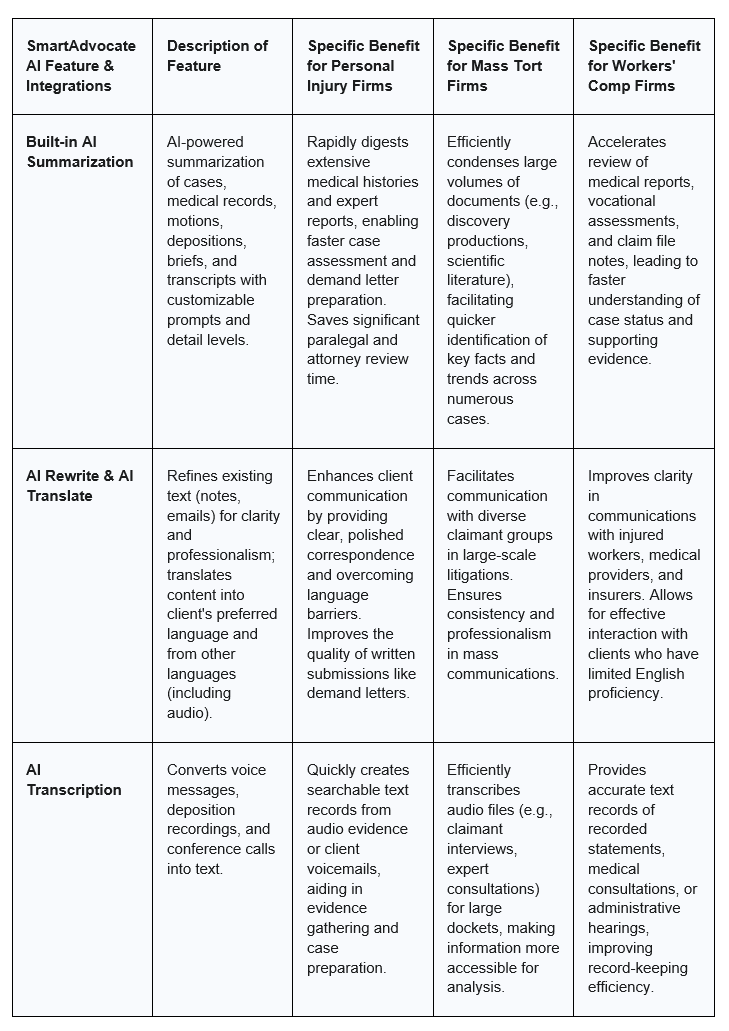
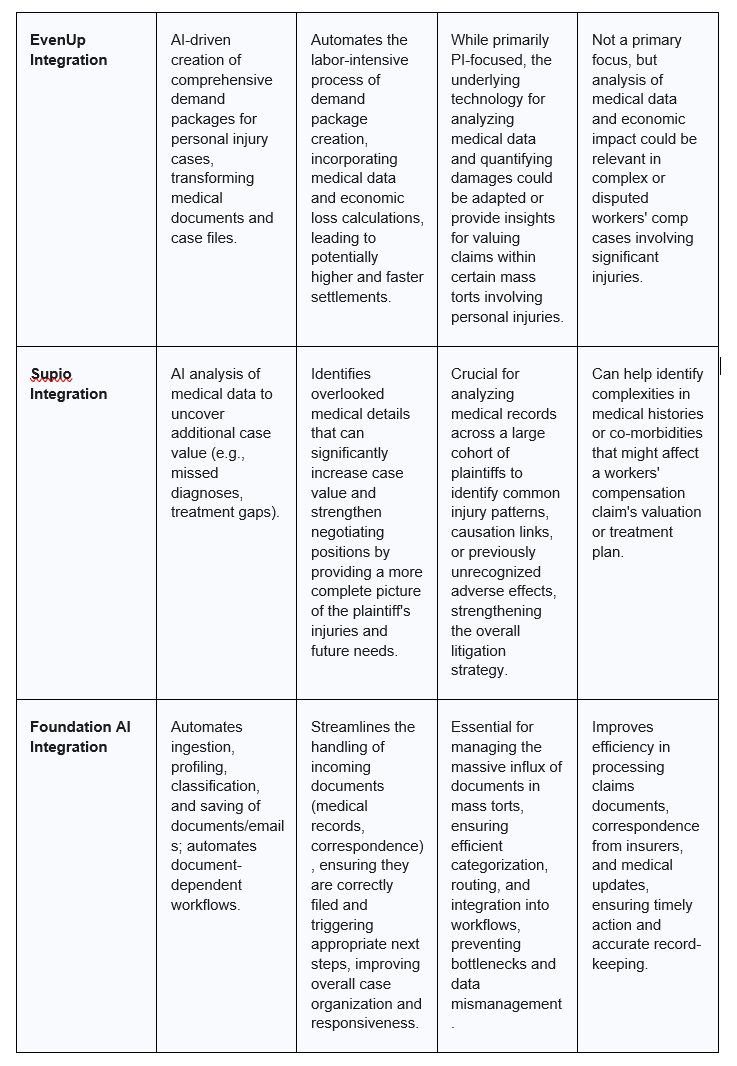
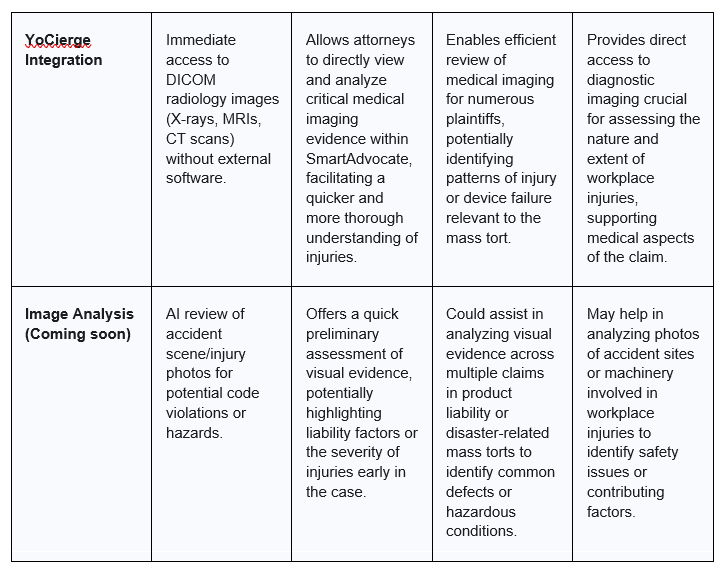
Built-in AI Summarization
AI-powered summarization of cases, medical records, motions, depositions, briefs, and transcripts with customizable prompts and detail levels.
Rapidly digests extensive medical histories and expert reports, enabling faster case assessment and demand letter preparation. Saves significant paralegal and attorney review time.
Efficiently condenses large volumes of documents (e.g., discovery productions, scientific literature), facilitating quicker identification of key facts and trends across numerous cases.
Accelerates review of medical reports, vocational assessments, and claim file notes, leading to faster understanding of case status and supporting evidence.
AI Rewrite & AI Translate
Refines existing text (notes, emails) for clarity and professionalism; translates content into client's preferred language and from other languages (including audio).
Enhances client communication by providing clear, polished correspondence and overcoming language barriers. Improves the quality of written submissions like demand letters.
Facilitates communication with diverse claimant groups in large-scale litigations. Ensures consistency and professionalism in mass communications.
Improves clarity in communications with injured workers, medical providers, and insurers. Allows for effective interaction with clients who have limited English proficiency.
AI Transcription
Converts voice messages, deposition recordings, and conference calls into text.
Quickly creates searchable text records from audio evidence or client voicemails, aiding in evidence gathering and case preparation.
Efficiently transcribes numerous audio files (e.g., claimant interviews, expert consultations) for large dockets, making information more accessible for analysis.
Provides accurate text records of recorded statements, medical consultations, or administrative hearings, improving record-keeping and review efficiency.
EvenUp Integration
AI-driven creation of comprehensive demand packages for personal injury cases, transforming medical documents and case files.
Automates the labor-intensive process of demand package creation, incorporating medical data and economic loss calculations, leading to potentially higher and faster settlements.
While primarily PI-focused, the underlying technology for analyzing medical data and quantifying damages could be adapted or provide insights for valuing claims within certain mass torts involving personal injuries.
Not a primary focus, but analysis of medical data and economic impact could be relevant in complex or disputed workers' comp cases involving significant injuries.
Supio Integration
AI analysis of medical data to uncover additional case value (e.g., missed diagnoses, treatment gaps).
Identifies overlooked medical details that can significantly increase case value and strengthen negotiating positions by providing a more complete picture of the plaintiff's injuries and future needs.
Crucial for analyzing medical records across a large cohort of plaintiffs to identify common injury patterns, causation links, or previously unrecognized adverse effects, strengthening the overall litigation strategy.
Can help identify complexities in medical histories or co-morbidities that might affect a workers' compensation claim's valuation or treatment plan.
Foundation AI Integration
Automates ingestion, profiling, classification, and saving of documents/emails; automates document-dependent workflows.
Streamlines the handling of incoming documents (medical records, correspondence), ensuring they are correctly filed and triggering appropriate next steps, improving overall case organization and responsiveness.
Essential for managing the massive influx of documents in mass torts, ensuring efficient categorization, routing, and integration into workflows, preventing bottlenecks and data mismanagement.
Improves efficiency in processing claims documents, correspondence from insurers, and medical updates, ensuring timely action and accurate record-keeping.
YoCierge Integration
Immediate access to DICOM radiology images (X-rays, MRIs, CT scans) without external software.
Allows attorneys to directly view and analyze critical medical imaging evidence within SmartAdvocate, facilitating a quicker and more thorough understanding of injuries.
Enables efficient review of medical imaging for numerous plaintiffs, potentially identifying patterns of injury or device failure relevant to the mass tort.
Provides direct access to diagnostic imaging crucial for assessing the nature and extent of workplace injuries, supporting medical aspects of the claim.
Image Analysis ([HD3] Coming soon)
AI review of accident scene/injury photos for potential code violations or hazards.
Offers a quick preliminary assessment of visual evidence, potentially highlighting liability factors or the severity of injuries early in the case.
Could assist in analyzing visual evidence across multiple claims in product liability or disaster-related mass torts to identify common defects or hazardous conditions.
May help in analyzing photos of accident sites or machinery involved in workplace injuries to identify safety issues or contributing factors.
Navigating the AI Frontier: Strategic and Ethical Considerations for Your Firm
Jumping into AI offers incredible opportunities, but it’s not a leap you should take without a plan. For your firm to truly succeed with AI in 2025 and beyond, you need to think strategically about the return on investment (ROI), ethical guidelines, data security, and how your firm’s operations and talent will evolve.
Maximizing Your AI ROI: It’s More Than Just Efficiency
Sure, AI saves time on admin tasks, but the real win goes way beyond that.
- Reclaim Valuable Time: AI demonstrably cuts down on administrative burdens and those non-billable hours. Thomson Reuters even predicts AI could give back about 12 hours per week per lawyer by 2029. Imagine that, potentially an extra $300,000 in new billable time annually, per lawyer! This reclaimed time can be poured into high-value work like complex legal analysis and client strategy.
- Big Wins for Small to Mid-Sized Firms: The impact can be especially huge for smaller firms. A LexisNexis survey found that 34% of lawyers in the 'Small Law' segment believe generative AI will make their firm more profitable.
- Unlock Strategic Advantages: To truly maximize ROI, look beyond just cutting costs. Think about:
- Better Case Outcomes: AI tools that help with medical record analysis, evidence discovery, and even predicting settlement values can lead to stronger cases and more favorable results.
- More Capacity for High-Value Work: By automating routine tasks, AI frees up your experienced legal pros to focus on complex legal thinking, strategic planning, and direct client interaction, where human expertise shines brightest.
- New Growth Opportunities: AI might enable your firm to handle more complex cases or a higher volume of cases, potentially opening doors to new service lines or allowing for deeper specialization.
- Better Case Outcomes: AI tools that help with medical record analysis, evidence discovery, and even predicting settlement values can lead to stronger cases and more favorable results.
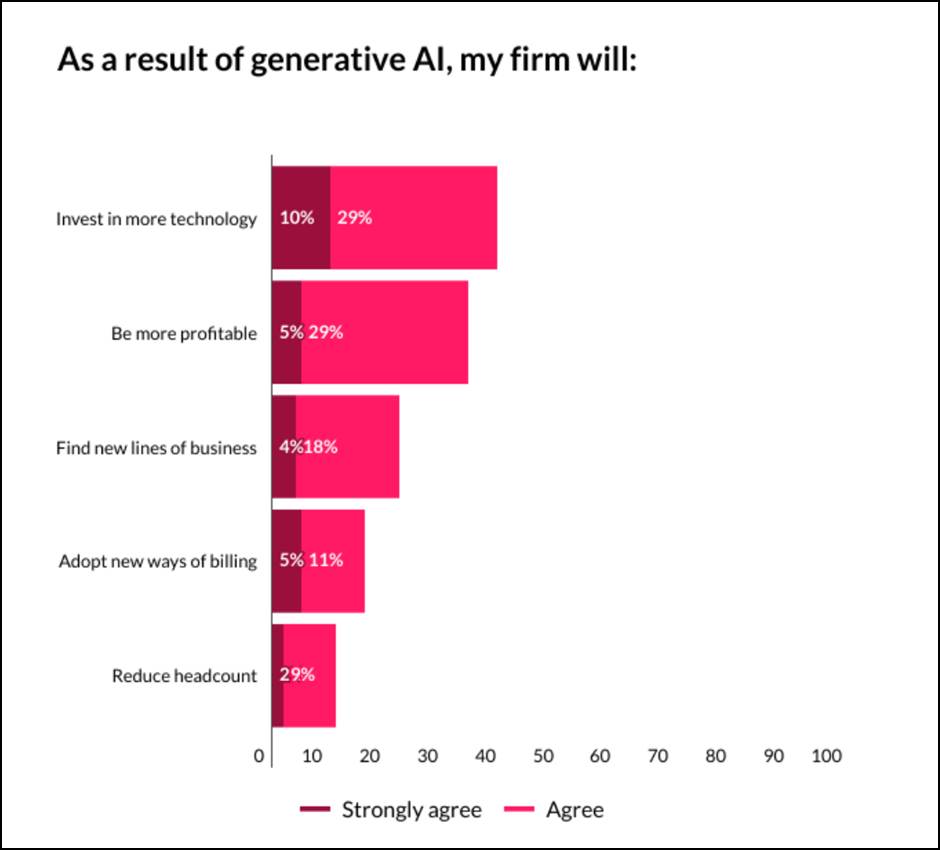
LexisNexis data, 2025.
Tackling Key Challenges and Upholding Ethical Standards
Adopting AI isn't without its hurdles. Here’s what to keep on your radar:
The Cost Factor & Proving ROI: Yes, there's an initial investment in AI software, training, and possibly retooling some workflows. You'll need to carefully weigh these costs against the expected gains in efficiency, capacity, and better case outcomes.
Data Security, Privacy, and HIPAA Compliance – Non-Negotiables!
- This is absolutely paramount, especially when you're handling highly sensitive client information and medical records common in PI, workers' comp, and mass tort cases.
- Your Action Plan:
- Demand robust data security from any AI vendor.
- Ensure data is encrypted (both when it's moving and when it's stored).
- Understand their data retention and destruction policies clearly.
- HIPAA compliance is an absolute must if you deal with Protected Health Information (PHI).
- Look for solutions that prioritize this. For example, SmartAdvocate uses the OpenAI API, which is covered by a SOC 2 Type 2 report. [HD4] This provides frameworks to help you meet these critical compliance needs.
- Demand robust data security from any AI vendor.
AI "Hallucinations," Accuracy, and Keeping Humans in Control:
- A big watch-out with current generative AI is its tendency to "hallucinate", meaning it can generate information that sounds plausible but is actually false, misleading, or totally made up. This includes things like adding non-existent citations to legal briefs, for which several attorneys have faced disciplinary action.
- Your Action Plan: Implement rigorous human review and validation for ALL AI-generated content (drafts, summaries, research). Remember, attorneys are ultimately responsible and professionally liable for every piece of legal work submitted for a client, no matter how much AI was involved. AI is a tool to augment human judgment, not replace it.
- Algorithmic Bias and Transparency: AI systems learn from the data they're trained on. If that data has historical biases (e.g., in sentencing or claim valuation), the AI might perpetuate or even amplify them.
- Your Action Plan: Be aware of this risk. Prioritize AI tools from vendors who are open about their training data and how they endeavor to reduce bias. Advocate for diverse data collection and keep an eye on AI performance to catch and correct biases.
The Billable Hour Shake-Up & Evolving Pricing: If AI can do in one hour what used to take ten, how do you bill for that? This is pushing firms to explore new pricing models like:
- Value-based pricing (fees tied to results).
- Flat fees for specific services.
- Subscription models. You'll need to rethink your pricing to reflect the value AI brings.
Your Smart Strategy for AI Adoption and Implementation
Jumping into AI without a plan is risky. A deliberate, strategic approach is key. Here’s how to build one:
- Map Your Tech Future: Create a multi-year technology roadmap. What upgrades are needed? Which new AI tools will you integrate? How will you manage risks? Where will funding come from? Review this regularly.
- Define Your "Why" and "How": Before rolling out any AI tool, be crystal clear on its purpose and scope. Identify the specific tasks and workflows where AI will be used, and get agreement on these approved uses.
- Train Your Team: Invest in comprehensive training for everyone who will touch the AI systems. This means understanding its capabilities, its limits, the ethical rules, and data security protocols.
- Talk to Your Clients (Policy Time!): Develop clear policies on when and how you'll inform clients about AI use in their cases. Transparency builds trust.
- Start Small, Win Big: Consider a phased approach. Pilot a secure AI tool that tackles a known pain point or major time-drain in your firm first. This lets you learn and adjust before a wider rollout.
- Get Leadership On Board: Successful tech adoption needs strong buy-in from the top and consistent communication across the firm about the benefits and proper use of new tools.
Remember: Humans Must Always be in the Loop! This is non-negotiable in legal AI. Shockingly, a reported 60% of firms don't have specific AI usage guidelines. This is a major risk. Setting up strong AI governance is an urgent priority for every law firm stepping into AI.
Your Quick Checklist for Ethical & Secure AI Adoption
Checklist Category
Key Considerations & Actionable Steps
I. Data Security & Privacy
Implement robust data encryption (in transit and at rest). Conduct thorough security vetting of all AI vendors (request SOC 2 reports, security audits). Establish clear data processing agreements (DPAs). Adhere to data minimization principles (only process necessary data). Ensure HIPAA/GDPR/CCPA compliance as applicable. Develop and test an incident response plan for data breaches. Define data retention and destruction policies for AI-processed data.
II. Accuracy & Reliability
Mandate human review and validation protocols for all substantive AI-generated outputs (e.g., legal drafts, summaries, analytical reports). Implement processes to actively check for and mitigate AI "hallucinations" and factual inaccuracies. Require validation of sources cited or relied upon by AI. Conduct periodic audits of AI tool performance and output quality.
III. Ethical Use & Transparency
Develop clear firm policies on permissible and prohibited uses of AI tools. Establish guidelines for client disclosure regarding the use of AI in their matters (when and how to inform). Ensure AI use does not lead to the unauthorized practice of law or breach of professional duties. Address potential algorithmic bias; require transparency from vendors on bias mitigation.
IV. Staff Training & Competency
Provide mandatory and ongoing training for all attorneys and staff on selected AI tools, focusing on capabilities, limitations, and proper usage. Educate personnel on ethical guidelines for AI use, data handling best practices, and firm-specific AI policies. Ensure competency in prompting AI effectively and critically evaluating its outputs.
V. Vendor Due Diligence
Scrutinize vendor security certifications (e.g., SOC 2 Type 2, ISO 27001). Review vendor data processing agreements, privacy policies, and terms of service carefully. Seek transparency from vendors regarding their AI models, training data, and mechanisms for ensuring accuracy and mitigating bias. Assess vendor stability, support responsiveness, and long-term product roadmap.
VI. Impact on Billing & Client Agreements
Review and update fee structures and client engagement letters to reflect the use of AI and its impact on efficiency and value delivery. Ensure clear communication with clients about how AI is used and how it benefits them (e.g., efficiency, potential cost savings, enhanced analysis) while maintaining fee transparency.
The Horizon Beyond 2025: What's Next in Legal AI?
2025 is a big year for AI in law, but the evolution is far from over. Firms that keep an eye on these future trends will be best positioned to adapt and keep winning in an increasingly AI-driven world.
Get Ready for "Agentic AI": More Autonomous Capabilities
One of the biggest shifts on the horizon is Agentic AI.
- What is it? Unlike current AI tools that usually need specific prompts for one-off tasks, agentic AI systems are designed to be semi-autonomous. They can understand broader goals, make decisions, and take a series of actions to achieve those goals with much less direct human hand-holding.
- Imagine: AI agents that could monitor your communications (with permission, of course!), automatically book relevant meetings, organize your to-do lists based on case developments, and even prep preliminary materials for the next steps in a case.
- The Impact: Gartner isn't kidding when they say agentic AI (along with Generative AI) will contribute to that legal tech market doubling by 2027. This points to AI systems handling complex workflows with more independence.
Hyper-Personalization: AI That Really Gets You
Get ready for legal tech that's tailored like a bespoke suit.
What is it? AI systems in 2025 and beyond are expected to get much better at customizing their outputs and interactions to the unique needs of your firm, specific users, and even individual clients. They'll use contextual info and user preferences to do this.
How it Helps:
- For You: Adaptive AI will provide more relevant and impactful info based on your past interactions, your role, and what you're working on.
- For Your Clients: Think more tailored communications, super-relevant updates, and even customized legal info delivered right when they need it.
- AI is also expected to handle specialized jargon (like complex medical terms in PI cases) much better than general AI models.
The Evolving Lawyer: From Doer to AI Strategist
As AI gets better at handling routine and data-heavy tasks, the role of human legal professionals is set for a major evolution.
- Not Replacement, but Elevation: Lawyers and paralegals are likely to shift into roles that emphasize strategic oversight, complex problem-solving, and those uniquely human skills AI can't touch.
- Focus on Your Strengths: With AI automating things like initial document review and basic legal research, you'll have more capacity to focus on:
- Strategic advisory roles.
- Nuanced legal analysis.
- Client counseling.
- Negotiation and courtroom advocacy.
- Strategic advisory roles.
- The Human Edge: Your value will increasingly lie in your ability to apply judgment, creativity, empathy, and ethical reasoning, qualities that are, for the foreseeable future, exclusively human.
Conclusion: Embracing AI is No Longer Optional
Artificial Intelligence isn't a distant dream; it's a powerful, present-day force transforming the legal industry.
For law firms specializing in personal injury, mass tort litigation, and workers' compensation, 2025 is a defining moment. Embracing AI isn't just about a tech upgrade; it's a fundamental shift in operational and competitive strategy.
The Upside is Huge:
- Unlock new levels of efficiency by automating time-sucking tasks.
- Boost profitability with better resource allocation and sharper case valuation.
- Elevate client service with faster resolutions and clearer communication.
But Proceed with Wisdom:
This journey requires your full attention to initial investments, ongoing costs, ironclad data security (especially HIPAA compliance), client confidentiality, and the ethical tightropes of algorithmic bias and AI "hallucinations".
Human Expertise is Irreplaceable: AI is a phenomenal tool to amplify your team's skills, but it is just that, a tool, and it cannot replace the nuanced judgment, ethical reasoning, and empathetic understanding that define a great legal professional.
Solutions like SmartAdvocate are leading the way, offering a smart mix of built-in AI tools for common tasks and strategic integrations with specialized AI partners for more complex challenges. This gives your firm a practical path to leverage AI effectively, tailored to your specific needs.
The Biggest Risk? Inaction. As competing firms adopt AI to get more efficient, improve case outcomes, and offer more responsive client service, those who lag behind will find themselves at a serious disadvantage.
The successful law firm of the near future will undoubtedly be an "AI-augmented" firm, where human expertise is powerfully amplified, not replaced, by intelligent technology.
Your key to thriving? Find the sweet spot between your team's skills and AI tools, foster a culture of learning, and strategically invest in tech that aligns with your firm’s goals and your commitment to your clients.
Embracing AI is no longer just an option. It's a strategic imperative for any law firm aiming to stay competitive, efficient, client-focused, and truly future-ready in the dynamic legal world of 2025 and beyond.
Frequently Asked Questions (FAQs)
- Q: Will AI actually replace lawyers or paralegals in plaintiff firms in the near future?
A: Not at all. The research is clear: AI is set to augment human capabilities, not replace legal professionals. Think of AI as a powerful assistant that automates routine tasks. This frees up you and your team for higher-value strategic work, complex legal thinking, and direct client interaction. Human oversight and judgment remain absolutely essential in all legal AI applications. - Q: For a small personal injury firm, what's the single biggest risk when adopting AI software?
A: Several risks are significant, but a major one is the combination of initial cost and proving a clear return on that investment. Alongside this, ensuring top-notch data security and strict HIPAA compliance for sensitive client medical data is a huge responsibility. Also, guarding against reliance on potentially inaccurate AI outputs ("AI hallucinations") without thorough human review is critical. - Q: Our mass tort firm wants to use AI for analyzing claimant data. How do we ensure it's ethical?
A: Great question. Start by developing clear internal firm policies on how AI can and cannot be used. Decide on guidelines for when and how you'll disclose AI use to clients. Critically, be aware of potential algorithmic bias. Choose vendors who are transparent about their data sources and how they work to minimize bias. And always, always maintain diligent human oversight and validation over any AI-driven analysis and the decisions that follow. - Q: What's a practical first step for a workers' compensation firm looking to explore AI in 2025?
A: Don't try to boil the ocean. Adopt a phased approach. Identify one significant pain point or a particularly time-consuming task in your current workflow. Then, pilot a secure, specific AI tool designed to tackle just that issue, perhaps AI for summarizing medical reports or automating parts of the claims form process. This lets your firm learn, make adjustments, and see tangible benefits on a smaller scale before considering a wider rollout. - Q: How exactly will AI change client communication for plaintiff law firms?
A: AI can make a big positive impact here.
- Better Intake: AI-powered chatbots can handle initial client intake, asking preliminary questions and gathering basic info 24/7.
- Proactive Updates: AI can help automate case status updates and reminders, keeping clients in the loop effortlessly.
- Bridge Language Gaps: For diverse client bases, AI translation services can be invaluable.
- Clearer Messaging: AI rewrite tools can help polish emails and other communications, ensuring clarity and professionalism.






